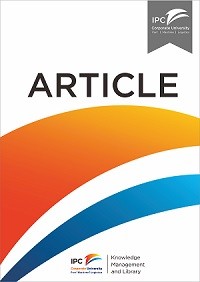Article
Energy Transit States and Maritime Security In The Malacca Strait: The Case of Singapore
This paper critically evaluates the role that Singapore plays in regional maritime security in Southeast
Asia. It demonstrates that although the Malacca Strait’s littoral states notionally have a common
interest in maritime security politics, competition as well as cooperation has been a hallmark of
Singapore’s approach. To explain this, we offer a conceptual extension to the emerging scholarly
literature on energy security: a typology for different types of energy transit state. Our analysis
identifies Singapore as an enmeshed energy transit state, a role which imposes specific requirements
on its security policy. Finally, we examine the key areas of threat perception, the protection of energy
assets through defence policy and port rivalry, as well as Singaporean leadership roles in multilateral
security initiatives. In so doing we argue that a typology of energy transit states which goes beyond a
‘good-bad’ dualism is potentially useful for helping us understand the behaviour of states in the
Malacca Strait.
Ketersediaan
Informasi Detail
- Judul Seri
-
Australian Journal of Maritime & Ocean Affairs
- No. Panggil
-
ATC MR CAS e
- Penerbit
- Singapore : Routledge., 2014
- Deskripsi Fisik
-
13 p
- Bahasa
-
English
- ISBN/ISSN
-
2333-6498
- Klasifikasi
-
MR
- Tipe Isi
-
-
- Tipe Media
-
-
- Tipe Pembawa
-
online resource
- Edisi
-
Vol. 4
- Subjek
- Info Detail Spesifik
-
-
- Pernyataan Tanggungjawab
-
Casey, Allison
Versi lain/terkait
| Judul | Edisi | Bahasa |
|---|---|---|
| Cargo flow and transit impacts on portdevelopment | Vol XVIll, No 3, 120-123 | en |
Lampiran Berkas
Komentar
Anda harus masuk sebelum memberikan komentar

 Karya Umum
Karya Umum  Filsafat
Filsafat  Agama
Agama  Ilmu-ilmu Sosial
Ilmu-ilmu Sosial  Bahasa
Bahasa  Ilmu-ilmu Murni
Ilmu-ilmu Murni  Ilmu-ilmu Terapan
Ilmu-ilmu Terapan  Kesenian, Hiburan, dan Olahraga
Kesenian, Hiburan, dan Olahraga  Kesusastraan
Kesusastraan  Geografi dan Sejarah
Geografi dan Sejarah